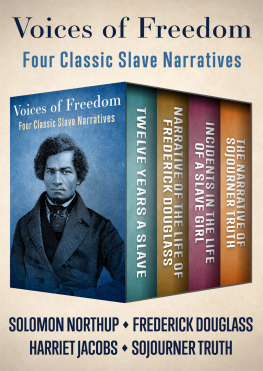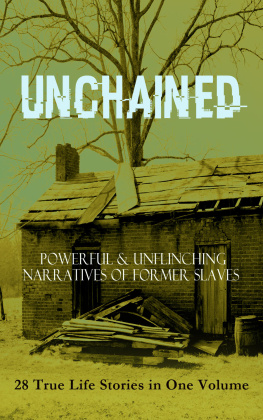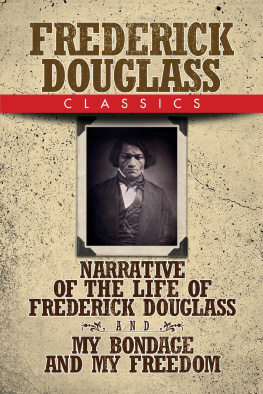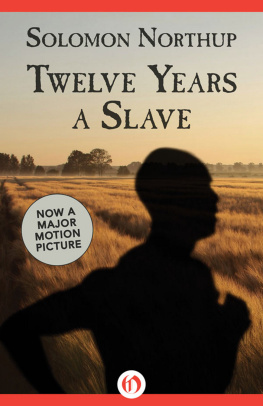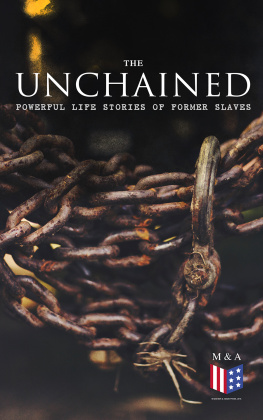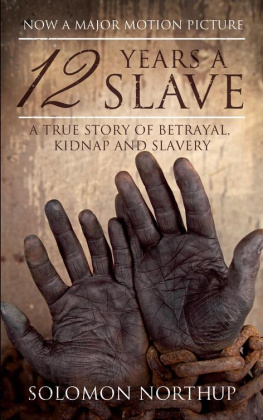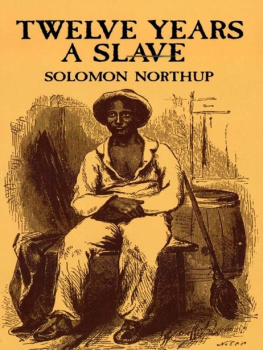Harriet Jacobs - Voices of Freedom: Four Classic Slave Narratives
Here you can read online Harriet Jacobs - Voices of Freedom: Four Classic Slave Narratives full text of the book (entire story) in english for free. Download pdf and epub, get meaning, cover and reviews about this ebook. year: 2017, publisher: Open Road Media, genre: Non-fiction. Description of the work, (preface) as well as reviews are available. Best literature library LitArk.com created for fans of good reading and offers a wide selection of genres:
Romance novel
Science fiction
Adventure
Detective
Science
History
Home and family
Prose
Art
Politics
Computer
Non-fiction
Religion
Business
Children
Humor
Choose a favorite category and find really read worthwhile books. Enjoy immersion in the world of imagination, feel the emotions of the characters or learn something new for yourself, make an fascinating discovery.
- Book:Voices of Freedom: Four Classic Slave Narratives
- Author:
- Publisher:Open Road Media
- Genre:
- Year:2017
- Rating:3 / 5
- Favourites:Add to favourites
- Your mark:
Voices of Freedom: Four Classic Slave Narratives: summary, description and annotation
We offer to read an annotation, description, summary or preface (depends on what the author of the book "Voices of Freedom: Four Classic Slave Narratives" wrote himself). If you haven't found the necessary information about the book — write in the comments, we will try to find it.
Until slavery was abolished in 1865, millions of men, women, and children toiled under a system that stripped them of their freedom and their humanity. Much has been written about this shameful era of American history, but few books speak with as much power as the narratives written by those who experienced slavery firsthand.
The basis for the film of the same name, Twelve Years a Slave is Solomon Northups heartrending chronicle of injustice and brutality. Northup was born and raised a freeman in New York Stateuntil he was kidnapped and sold into slavery in the Deep South. Before returning to his family and freedom, he suffered smallpox, the overseers lash, and an attempted lynching.
Perhaps the most famous of all slave chronicles, Narrative of the Life of Frederick Douglass immediately struck a chord with readers when it was first released in 1855. After escaping to freedom, Douglass became a well-known orator and abolitionist, drawing on his own experiences to condemn the evils of slavery.
One of the few female slave narratives, Incidents in the Life of a Slave Girl was originally published under a pseudonym by Harriet Jacobs. After she escaped to freedom in North Carolina, where she became an abolitionist, Jacobs described the particular suffering of female slaves, including sexual harassment and abuse.
Published in 1850, The Narrative of Sojourner Truth is Truths landmark memoir of her life as a slave in upstate New York and her transformation into a pioneer for racial equality and womens rights.
These narratives serve as a timeless testament to the strength and bravery, and as a voice to the millions of people enslaved in this dark period of American history.
This ebook has been professionally proofread to ensure accuracy and readability on all devices.
Solomon Northup (18081857) was a free-born African American from Saratoga Springs, New York. In 1841, he was kidnapped and forced into slavery for twelve years. With the help of his family and his fathers former master, Northup ultimately won his freedom and took the traders who betrayed him to court. He is best known for his autobiographical account of his enslavement, Twelve Years a Slave.
Frederick Douglass (18181895) was an American orator, author, and leader of the abolitionist movement. Born a slave in Maryland, Douglass successfully escaped in 1838 by boarding a train headed north. As a free man, he published several autobiographical works detailing his experiences in slavery. Narrative of the Life of Frederick Douglass is widely considered to be the finest example of a slave narrative. Douglass became the first African American to hold a high government rank, serving as minister-resident and consul general to the Republic of Haiti.
Harriet Jacobs (18131897) was an American author. Born into slavery in North Carolina, she escaped in 1835, and spent seven years hiding in her grandmothers attic before fleeing to the North. In 1861, she published her memoir, Incidents in the Life of a Slave Girl, under the pseudonym Linda Brent. Jacobs spent the Civil War and Reconstruction periods traveling the country, advocating on behalf of the rights of freed slaves.
Sojourner Truth (17971883) was a civil and womens rights activist. She was raised in Dutch-speaking Ulster County, New York, and was bought and sold into slavery four times. In 1827, Truth ran away with her child and found refuge with an abolitionist family. Once freed, Truth moved to New York City, where she became an itinerant preacher and worked with other abolitionists to spread the word on antislavery and womens rights. In her later years, she became involved with the Freedmens Bureau in Washington, DC, lobbying against the Civil War and segregation.
Harriet Jacobs: author's other books
Who wrote Voices of Freedom: Four Classic Slave Narratives? Find out the surname, the name of the author of the book and a list of all author's works by series.

